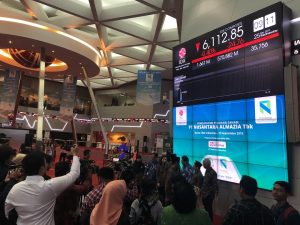Diversifying Your Islamic Portfolio Through Forex Trading
Forex trading is a popular investment option for individuals looking to diversify their portfolios and potentially generate profits. However, for Muslims, it is important to ensure that any investment adheres to Islamic principles and is in compliance with Shariah law. This article will explore how Muslims can diversify their portfolios through forex trading while staying true to their religious beliefs.
Before delving into the specifics of forex trading, it is crucial to understand the basic principles of Islamic finance. Islamic finance is based on the principles of fairness, transparency, and avoiding any element of uncertainty or gambling. It prohibits the earning or payment of interest, known as riba, and prohibits investments in businesses that are considered haram (forbidden) such as alcohol, gambling, or pork.
Forex trading involves the buying and selling of different currencies in order to profit from their fluctuations in value. While some Muslims may be hesitant to participate in forex trading due to concerns about riba, it is possible to engage in the forex market in a Shariah-compliant manner.
One way to ensure compliance with Islamic principles is by using a forex trading account that is specifically designed for Muslims. These accounts, also known as Islamic or swap-free accounts, are offered by many forex brokers. Islamic accounts operate on the principle of profit sharing instead of charging or paying interest. In these accounts, brokers do not pay or charge overnight swap fees, which are considered to be interest payments.
Another important consideration when engaging in forex trading is to ensure that the currencies being traded are halal. In Islamic finance, money is considered a medium of exchange and should not be traded for its own sake. Therefore, it is important to choose currencies that are used for legitimate purposes and not for speculative purposes.
To diversify an Islamic portfolio through forex trading, it is essential to consider the principles of asset allocation. Asset allocation refers to dividing investments among different asset classes, such as equities, fixed income, and alternative investments, to reduce risk and increase potential returns.
Forex trading can be seen as an alternative investment that can complement other asset classes in an Islamic portfolio. By including forex trading in the overall asset allocation strategy, Muslims can potentially benefit from the diversification benefits that the forex market offers.
The forex market is highly liquid and operates 24 hours a day, allowing for greater flexibility and the potential to profit from currency fluctuations. This can be particularly advantageous for Muslims who are looking to diversify their portfolios beyond traditional investments such as stocks and bonds.
However, it is important to note that forex trading carries a level of risk, and individuals should be prepared to carefully manage their positions and monitor market conditions. It is advisable to seek professional advice and education before engaging in forex trading to ensure a thorough understanding of the market dynamics and the potential risks involved.
In conclusion, diversifying an Islamic portfolio through forex trading is possible by adhering to Shariah-compliant practices. By using Islamic forex trading accounts and selecting halal currencies, Muslims can participate in the forex market while staying true to their religious beliefs. It is important to consider asset allocation and seek professional advice when incorporating forex trading into an Islamic portfolio. With proper education and risk management, forex trading can be a valuable component of a diversified investment strategy for Muslims.





